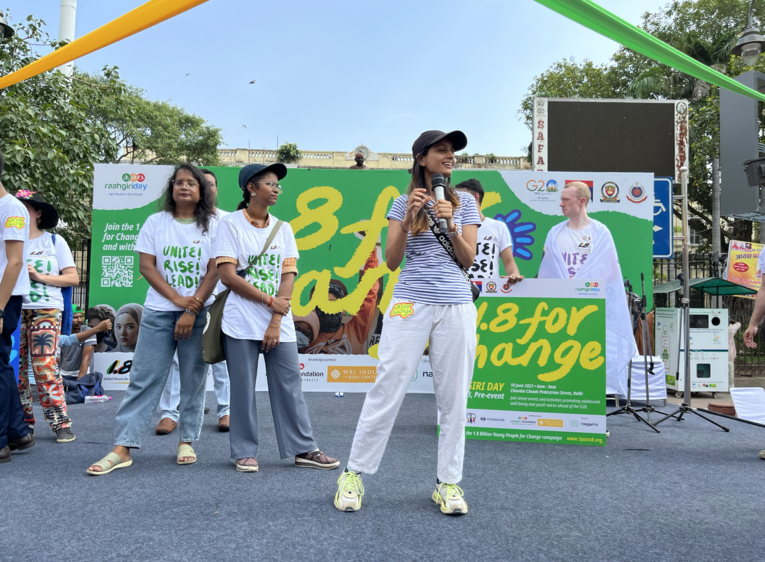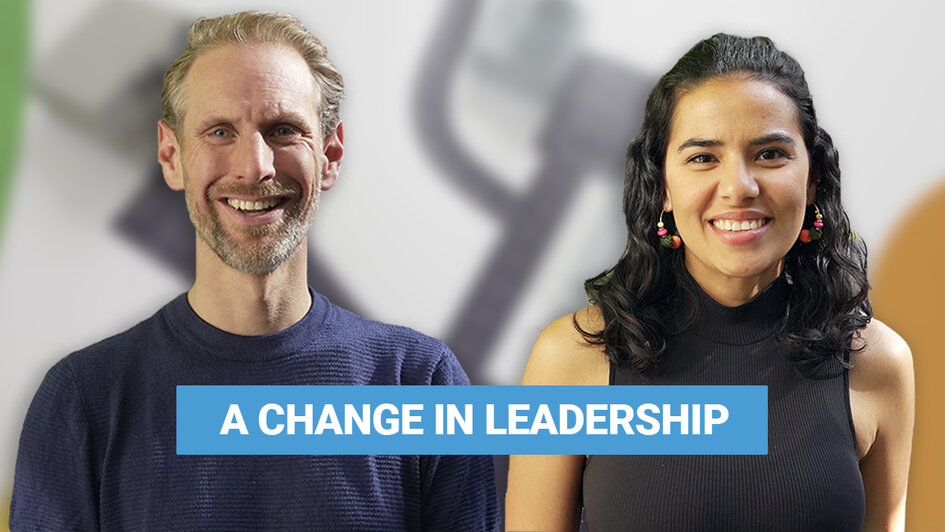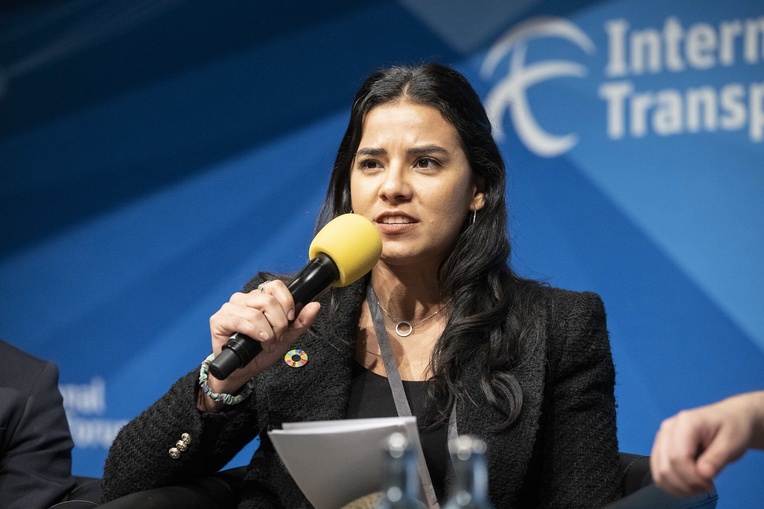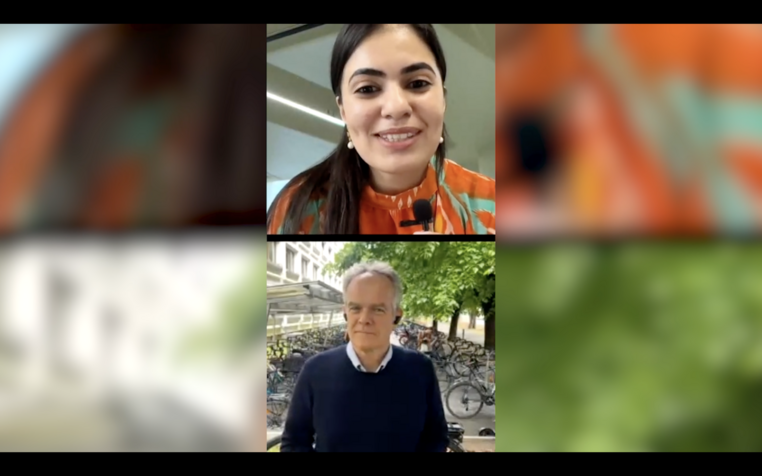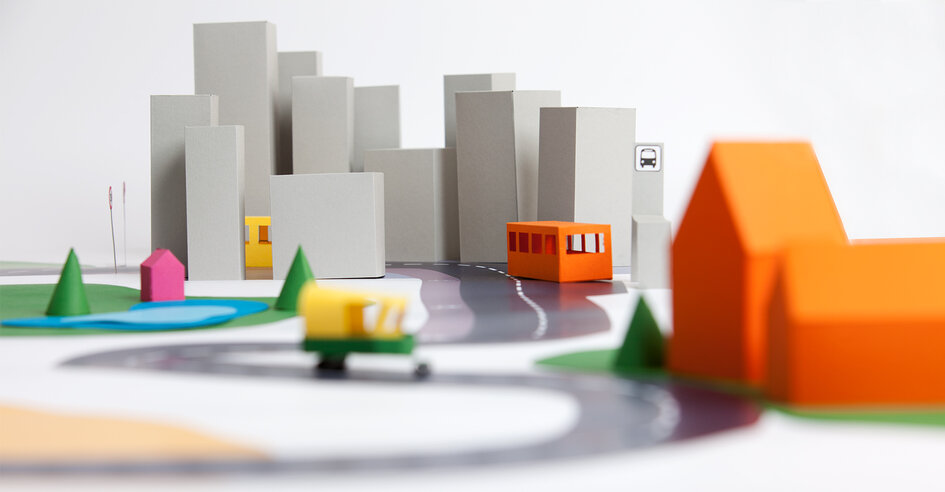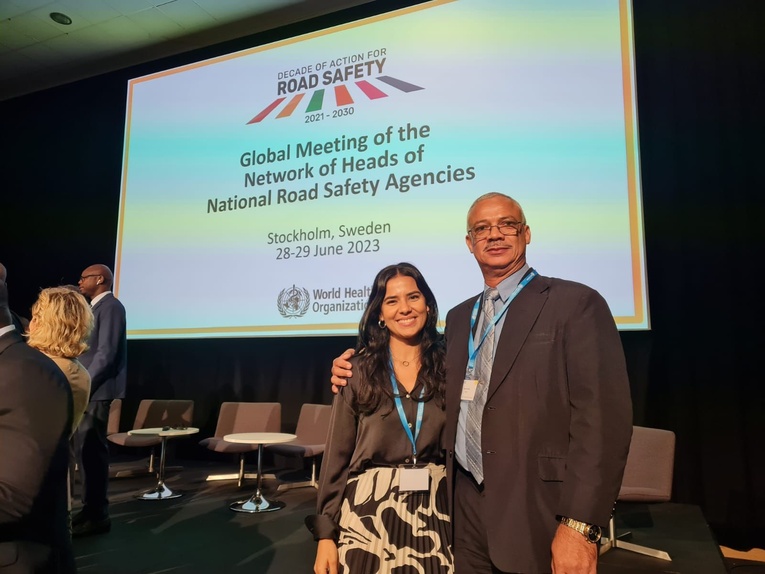
YOURS Joins Global Meeting of the Network of Heads of National Road Safety Agencies
Stockholm, Sweden – Last 28 June, YOURS – Youth for Road Safety Executive Director Raquel Barrios joined the Global Meeting of the Network of Heads of National Road Safety Agencies to discuss the importance and necessity of engaging, involving, and supporting young people in the design and implementation of road safety policies worldwide.
Calling all world leaders
Raquel joined UN Special Envoy for Road Safety Jean Todt, Director of the Social Determinants of Health from the World Health Organization Dr. Etienne Krug, and Chair of the International Road Victims’ Partnership (IRVP) Road Victims NGOs Donna Price in the Meeting’s opening speech.
During her intervention, Raquel talked about the work YOURS is doing to support and empower youth in their work to address road safety issues in their communities. She elaborated on what it means to meaningfully engage youth, describing it as a “systematic involvement of youth voices in the entire cycle of road safety policy including assessing needs, strategic planning, resource allocation, and implementing concrete actions.”
“We promote the design of a transport system that responds to youth needs; for them but with them.”
She also acknowledged how different agencies have led initiatives that involve multiple stakeholders as a means to speed up sustainable actions toward the implementation of the Global Plan for Road Safety 2021 – 2030.

In her speech, Raquel urged the leaders, decision-makers, and policymakers to meaningfully involve youth. “They are ready to put their ideas, experiences, opinions, and actions to ensure the healthier, safer, and sustainable transport system that they deserve.”
The National Road Safety Agencies Meeting
The Global Network of Heads of Road Safety Agencies Meeting gathered representatives from nearly a hundred countries who are responsible for implementing the United Nations Decade of Action for Global Road Safety 2021 – 2030.
The goal of the Meeting was to allow and support participants and representatives to share knowledge and experiences around the role of national road safety agencies in the strategic planning, role setting, multi-sector coordination, financing, and monitoring and evaluation of different national road safety plans across the globe.
Stockholm, Sweden – Last 28 June, YOURS – Youth for Road Safety Executive Director Raquel Barrios joined the Global Meeting of the Network of Heads of National Road Safety Agencies to discuss the importance and necessity of engaging, involving, and supporting young people in the design and implementation of road safety policies worldwide.
Calling all world leaders
Raquel joined UN Special Envoy for Road Safety Jean Todt, Director of the Social Determinants of Health from the World Health Organization Dr. Etienne Krug, and Chair of the International Road Victims’ Partnership (IRVP) Road Victims NGOs Donna Price in the Meeting’s opening speech.
During her intervention, Raquel talked about the work YOURS is doing to support and empower youth in their work to address road safety issues in their communities. She elaborated on what it means to meaningfully engage youth, describing it as a “systematic involvement of youth voices in the entire cycle of road safety policy including assessing needs, strategic planning, resource allocation, and implementing concrete actions.”
“We promote the design of a transport system that responds to youth needs; for them but with them.”
She also acknowledged how different agencies have led initiatives that involve multiple stakeholders as a means to speed up sustainable actions toward the implementation of the Global Plan for Road Safety 2021 – 2030.

Through the Meeting, YOURS as an organization created a stream of networks within different organizations that support and prioritize youth engagement in road safety efforts. Advocacy tools such as the Policymakers’ Toolkit were also shared to better guide leaders on how to institutionalize youth involvement within their offices.
Different organizations have commended the inclusion of youth voices and perspectives in the Meeting, all conceding to the role of youth in addressing road safety issues.
“So, dear leaders of today, are you ready to work together with the leaders of tomorrow?” – Raquel Barrios
DOWNLOAD OUR POLICYMAKERS’ TOOLKIT

